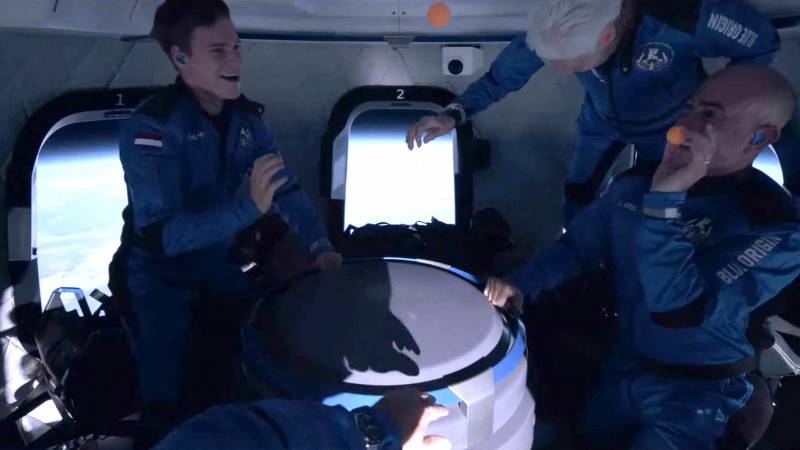Despite the innovation, not everyone is positive about it. Greenpeace points out, among other things, the polluting side of such spaceflights. According to the environmental organization, emissions from Bezos’ spaceflight are 278 times more than the average emissions of a global citizen in an entire year. “This is another vanity ride!” the organization wrote on Twitter. yesterday.
It’s hard to say exactly how much pollution short spaceflights cause. But according to astronomy professor Vincent Ike, Greenpeace’s estimate is quite reasonable. According to him, it is indisputable that space travel is harmful to the environment. “We’re scattering trash in the air,” Ike says.
“The more missiles, the higher the emissions.”
Even if spaceflights do not last long – in Bezos’ case even a few minutes – according to astronomer Lucas Ellerbrück, there are already a lot of emissions: “You have to achieve a speed much higher than the speed of the plane. Every rocket that you release more pollution leads to pollution.” According to a scientist from University College London, there are approximately 200 to 300 tons of carbon dioxide in each release.
The Blue Origin rocket engine runs on hydrogen and liquid oxygen, thus emitting primarily water vapor. But as clean as that sounds, producing it involves a lot of carbon dioxide emissions.
“The more rockets are in the air, the higher the emissions,” says Ellerbroek. “And that’s at a time when we insist on the importance of driving an electric car and reducing flying.” According to him, there is no possibility of a clean alternative. ‘The parties invest very little in it.’
This also applies to pollution in the room itself. According to Ellerbroek, there are no rules for space pollution and who is responsible for cleaning it. “It’s a haven. Musk’s SpaceX launches tens of thousands of satellites for the Starlink constellationAnd the Without sufficient accountability for those who clean up the mess.”
“Scientific success misuses it for advertising”
Then there is the scientific aspect. Because what results from billionaires’ extremely short journeys in terms of knowledge? Professor Ike is short on this: “Nothing. It is better to launch 80 kilograms of tools into space than 80 kilograms of people.”
IK is a strong supporter of space missions that involve research. “People like Andre Kuipers have work to do there,” says the professor. “But if you go 100 kilometers above the ground with a urinal, it won’t help you.” “There’s nothing you do out there that we can’t look for better on Earth. It’s sad for us scientists that the tremendous achievements of science are being misused in this kind of advertising.”
“Recklessness at a time when bad things happen”
However, astronomer Ellerbroek understands why space travel now seems popular with those who can afford it. “Space travel is futuristic and that’s cool. It’s trivial at a time when bad things happen, it’s a form of escape from reality.”
Gravity researcher Jacques van Loon of VU University Amsterdam also says that space has an immense gravitational pull. So he understands why people pay so much for a space flight.
But at the same time, he says, an important aspect is overlooked: health. “For short flights, this is not a problem, but if we go to Mars in the future, as Elon Musk wants, the consequences of weightlessness will certainly be problematic.” Those who have been without weight for a long time can suffer from nausea, headache, and bone decalcification, for example.
Van Loon: “You also have to deal with a bucket of cosmic radiation.” This is because you leave the Earth’s magnetosphere once you go into space. “Earth has a magnetosphere around it,” van Loon explains. “This shield stops this dangerous radiation on Earth.”
Professor Ike describes space tourism as a “bad idea”. “I understand that there is trade in it, it’s great to see the Earth from a distance,” he says. “But what’s going to happen soon is that people put in a big bag of money, get thrown into the air for 100 kilometers and then fall again. Instead, they invest that money in things that benefit the Earth.”

Avid music fanatic. Communicator. Social media expert. Award-winning bacon scholar. Alcohol fan.

